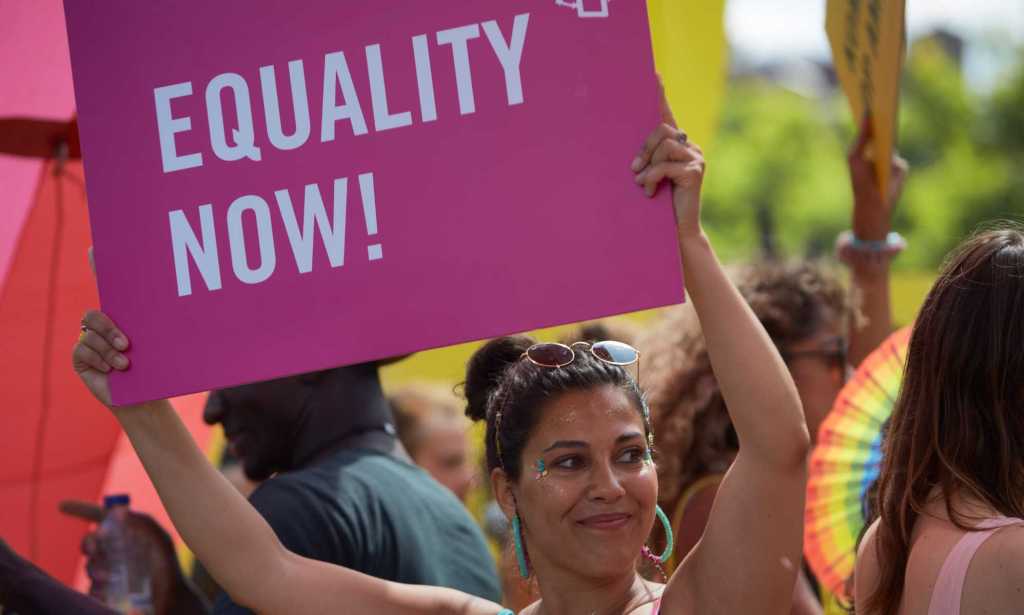Almost a quarter of Gen Z women don’t identify as straight, eye-opening study finds
Sign up for more LGBTQ+ news and updates at TrueQueer.
Almost a quarter of Generation Z (Gen Z) women in the UK do not identify as straight, according to a new report by sexual wellness brand Hims & Hers Health. The report, titled “Let’s Talk About Sex: The 2023 UK Report,” collected data from a survey of 3,688 individuals, including 396 Hims & Hers Health customers, aged between 18 and 65. The findings reveal that Gen Z women, those born after 1997, are the least likely social group to identify as heterosexual and are more likely to identify as bisexual compared to older age groups.
The report shows that only 76 percent of Gen Z women in the UK self-identify as heterosexual, in contrast to 87 percent among all other age groups. Furthermore, 14 percent of Gen Z women identified as bisexual, which is more than double the percentage seen across other age groups. In addition, five percent of Gen Z women described their sexuality as “other,” a category that includes terms such as pansexual, asexual, and queer. This is compared to just 2.5 percent of women in the UK as a whole. Notably, the percentage of women who identified as gay remained consistent across all age groups at three percent.
These findings align with the UK Census data published by the Office of National Statistics (ONS) in January, which showed that the 16-24 age group had the highest proportion of lesbian, gay, and bisexual people. Within this age group, 6.91 percent identified as lesbian, gay, or bisexual, more than twice the percentage (3.16 percent) of the overall population. The census data also revealed that women were twice as likely as men to identify as bisexual across all age groups, while men were more likely to identify as gay.
Alix Fox, a journalist, broadcaster, and sex expert, suggests that the broader reported spectrum of sexual identity among Gen Z women could be attributed to the evolving language around sex and sexuality. Fox believes that there have always been individuals with diverse sexual identities and relationship models outside of the heterosexual, monogamous norm. However, the increased knowledge and use of terms like “pansexual,” “demisexual,” and “consensually non-monogamous” make it easier for individuals to describe and discuss their feelings, leading to a greater appreciation of their legitimacy.
Fox further highlights that cultural gender roles are changing, and this shift allows women to question how they want their lives to look, including their sexual preferences. This exploration can be empowering and liberating for individuals as they discover new aspects of their sexual identities.
The Hims & Hers Health report sheds light on the diversity of sexual identities among Gen Z women in the UK. The findings indicate a shift away from the traditional heterosexual identification and a greater openness to identifying as bisexual or within the “other” category. This trend aligns with the broader societal changes in understanding and acceptance of diverse sexual orientations. As language around sex and sexuality continues to evolve, it is crucial to create a supportive and inclusive environment for individuals of all sexual identities.
Follow us on: Facebook for more LGBTQ+ news and updates at TrueQueer.
“Gen Z women”
![]()

